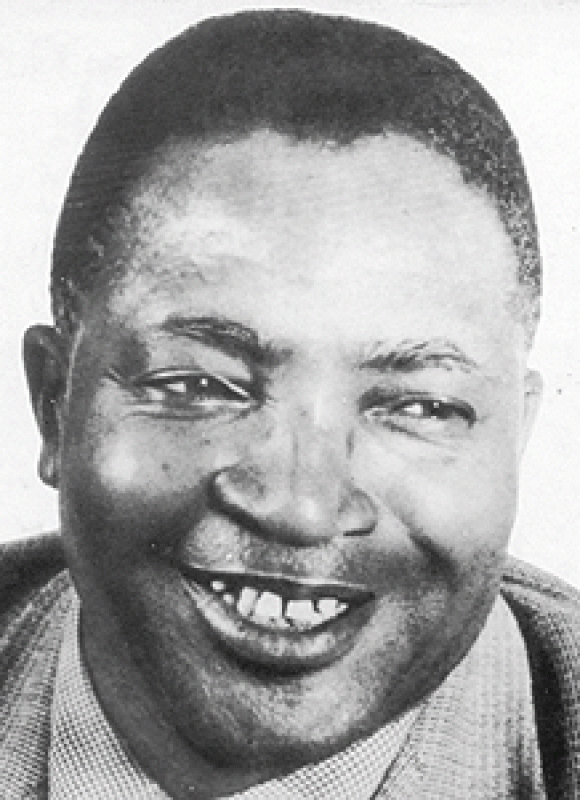PIONEER
Moses Kotane

Unionist | Politician | Activist for worker rights
Born: 9 August 1905 Died: 19 May 1978
“Because of the injustices, ruthlessness and indignities which accompany the implementation of the policies of apartheid and segregation, a mood of resistance and defiance is rising among the voiceless and rightless Non-White people in this country ... Instead of apartheid, the Congress movement stands for human fraternity; instead of baasskap, equality; instead of suppression, liberty.”
Who is
Moses Kotane?
Secretary-General of the Communist Party of South Africa, organiser of the Defiance Campaign and a defendant in the Treason Trial.
Professions
and Roles
Trade union member and organiser, Secretary-General of the Communist Party of South Africa, African National Congress (ANC) National Executive Committee (NEC) member, Defiance Campaign organiser, Treason Trialist, photographer, journalist, miner, and baker.
Best Known For
Serving as Secretary-General of the South African Communist Party (SACP).
Life highlights
- Kotane joined the African Bakers’ Union in 1928 and was introduced to the SACP. Three years later, he was working for the SACP full time as a union organiser.
- Kotane wrote for and edited the SACP newspaper, Umsebenzi.
- In 1933, Kotane was sent to the International Lenin School in Moscow, in the then-Soviet Union. He studied Marxism, Leninism, and political theory.
- After returning to South Africa in 1938, Kotane became the Secretary-General of the SACP. He would remain in this position until his death in 1978, throughout the party’s trying years of being banned under the Suppression of Communism Act.
- Kotane drafted the African Claims document with Dr Xuma of the ANC.
- Kotane organised the 1946 Witwatersrand African Mineworkers’ strike which was supported by 100 000 workers.
- In 1946, Kotane was elected to the role of Treasurer in the NEC of the ANC. He held this position until the organisation was banned in 1951.
- In December of 1949, Kotane was part of the committee responsible for drawing up the Programme of Action for the ANC for the years to come. This was the beginning of the Defiance Campaign.
- Kotane was charged with high treason during the Treason Trial of 1956 to 1961.
- Kotane was awarded the Isithwalandwe Medal by the ANC in 1975 on his 70th birthday. This honour is the highest award given by the ANC for excellent leadership. The word isithwalandwe means ‘the one who wears the plumes of the rare bird’.
- In 1968, he suffered a stroke and was flown to Moscow for medical treatment. Although he made some recovery and was able to continue acting as the Secretary-General for the SACP and an NEC member of the ANC while in exile in Moscow, he ultimately died in the Soviet Union in 1978 at the age of 73. He was buried in the Soviet Union. His remains were disinterred and returned to South Africa only in 2015, where he was buried at Pella, in the North West, on 14 March 2015.
IN THEIR OWN WORDS
“Because of the injustices, ruthlessness and indignities which accompany the implementation of the policies of apartheid and segregation, a mood of resistance and defiance is rising among the voiceless and rightless Non-White people in this country … Instead of apartheid, the Congress movement stands for human fraternity; instead of baasskap, equality; instead of suppression, liberty.”
– Moses Kotane, May 1957
IN THE WORDS OF OTHERS
“But if there is one quality in Moses Kotane which I would single out before all others, it was that he was incorruptible … not only in his politics but also in his personal life. Moses Kotane was a man you knew could never let you down … He was a hard taskmaster, but only because he put the movement above himself and because he never demanded from others more than he was prepared to do himself.”
– Speech delivered by Dr Dadoo on behalf of the SACP at the Novodevichy Cemetery in Moscow where Moses Kotane was buried, 26 May 1978
